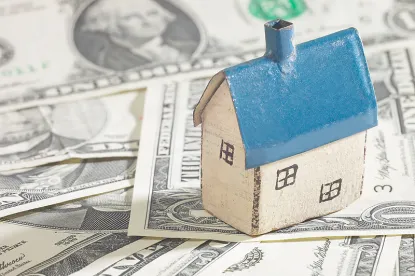In a short period of time, COVID-19 has changed the way we live and conduct business.
Sadly, the pandemic seems as though it will cause (or already has caused, depending on who you ask) a devastating impact on our local and national economies, and individuals' financial stability. In times like these, bankruptcy filings may become more common for those trying to recover from long stretches out of work, layoffs, reduced cash flow, or the closing of businesses. This can, and likely will, ultimately affect the bottom line of many community associations. But, some steps can be taken to mitigate – or in some cases, avoid – the impact of increased assessment payment defaults and/or homeowner bankruptcy filings within a community.
The Benefits of a Claim of Lien
North Carolina law affords community associations the right to file a claim of lien against a lot or parcel within the community to secure the unpaid assessments, interest, late fees, legal fees, and other charges that may accrue on that homeowner's account. State laws, and perhaps the community's restrictive covenants, require certain procedural steps and notices to be satisfied before a claim of lien can be properly filed or enforced. But, the filing of a claim of lien can be an extremely useful collection tool for the community association.
Once filed, the claim of lien acts as a lien against the real estate at issue to secure the then-outstanding account balance, plus all additional sums that may accrue during the three year period that immediately follows. Claims of lien can be "enforced" at any time during that three year period, so the association has some time and flexibility to allow for repayment plans or to delay foreclosure or litigation efforts when appropriate. If a property sells during that period, the association may be entitled to repayment at closing. And if a bankruptcy filing occurs, the association may have rights as a secured creditor in the case.
The Automatic Stay
The moment a bankruptcy proceeding is filed, federal law provides for an immediate and "automatic stay" of the community association's efforts to collect sums due, assert or perfect liens against assets of the filing homeowner, and other similar actions. This automatic stay occurs as a matter of law, regardless of the community association's actual knowledge or notice of the bankruptcy filing itself. As a result, once a homeowner files bankruptcy, the community association must stop any further collection or enforcement proceedings – or, in some cases, seek the bankruptcy court's approval before continuing with pending actions or legal proceedings. In some bankruptcy cases, there may also be a "co-debtor stay" that applies to protect a non-filing spouse.
It is critical that the community association cease its collection efforts as soon as it learns about the bankruptcy filing. No further demand letters should be issued to the homeowner, and no liens, foreclosures, or lawsuits should be filed until the community association consults with its legal counsel. Violations of the automatic stay could potentially subject the community association to sanctions and penalties in the bankruptcy case.
Right to Repayment in Bankruptcy
The community association's ability to recover its "pre-petition" account balance, i.e., those amounts that arose prior to or on the date of the bankruptcy filing, will largely depend on its status as a secured creditor or unsecured creditor in the proceeding. Secured creditors are those holding one or more liens against the debtor's assets. They typically stand at the front of the line for repayment in the bankruptcy case, which may occur from a sale of the asset(s) at issue or through a stream of payments provided for in a "plan of reorganization." Unsecured creditors stand at the back of the repayment line and are rarely paid in full in bankruptcy. If a claim of lien was timely filed, the community association might have rights as a secured creditor in the bankruptcy case. But, bankruptcy proceedings are equitable in nature, and properly filed claims of lien can, in certain instances, be stripped from the property or disregarded in the course of a case.
Assessments and related charges that accrue after the date of the bankruptcy filing are generally regarded as non-dischargeable in bankruptcy. Plans of reorganization proposed in Chapter 11 and Chapter 13 proceedings should typically provide for the ongoing repayment of these "post-petition" assessments as they come due.
Conclusion
Outside of bankruptcy proceedings, claims of lien secure ongoing assessment obligations and provide community associations with the flexibility to discuss workouts, repayment plans, or to enforce those liens through lawsuits or foreclosure actions. If a bankruptcy filing occurs, claims of lien may give community associations additional rights to repayment as a secured creditor. But the collection and recovery of delinquent accounts, whether in or out of bankruptcy, is never guaranteed. Still, community associations put themselves in the best position to recover assessments from delinquent or bankrupt owners by timely and diligently filing claims of lien. Community associations should not just be diligent is seeking legal counsel after a bankruptcy case is filed, but should also be proactive in protecting their rights before it is too late.





 />i
/>i
